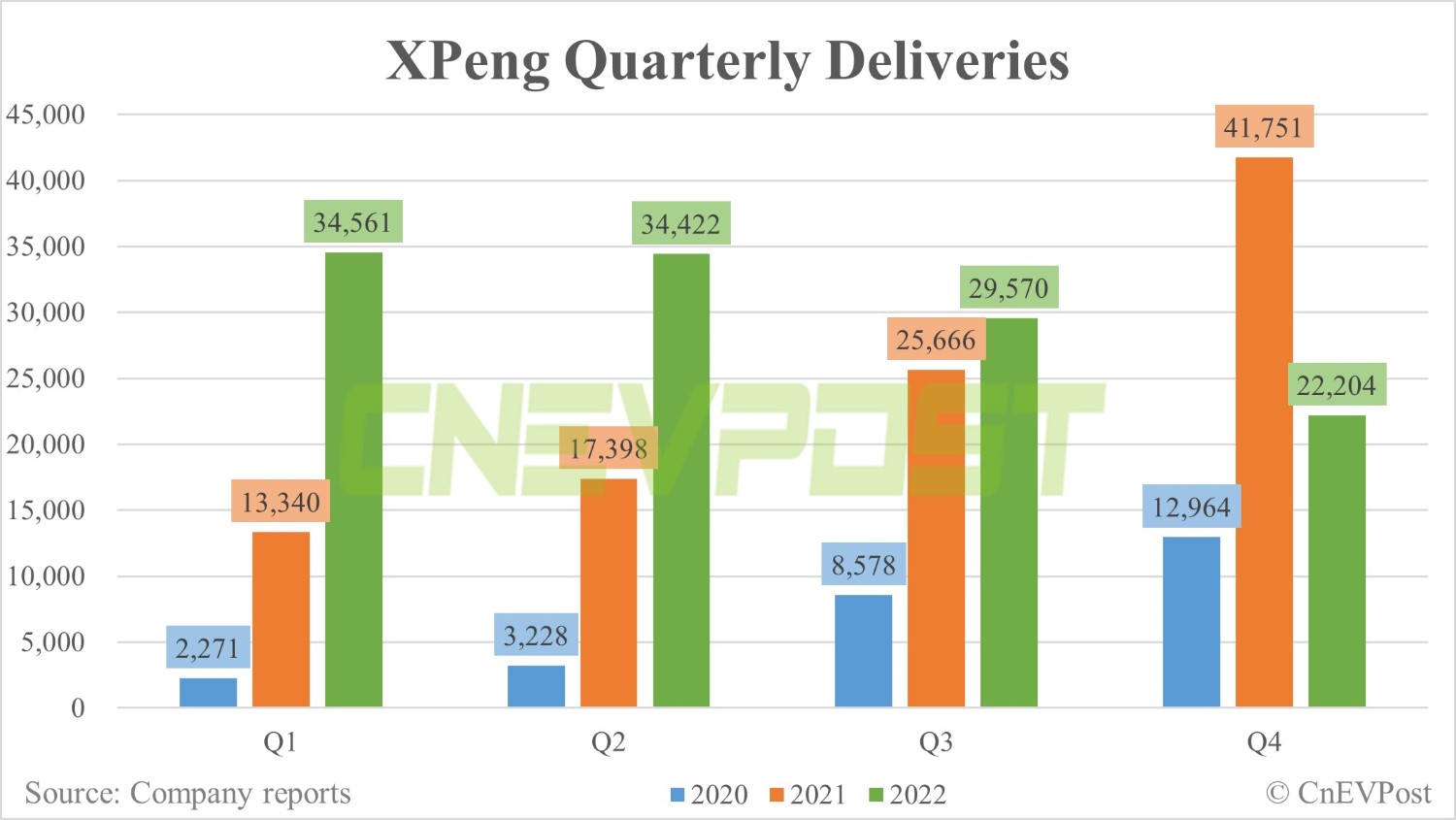This article is being updated, please refresh later for more content.

XPeng reported revenue of RMB 5.14 billion in the fourth quarter, below market expectations of RMB 5.732 billion.
This represents a 39.95 percent year-on-year decline and a 24.63 percent decline from the third quarter.
XPeng generated RMB 4.66 billion of automotive sales revenue in the fourth quarter, down 43.1 percent from the same period in 2021 and down 25.3 percent from the third quarter of 2022.
It reported a gross margin of 8.7 percent in the fourth quarter compared to 12.0 percent in the same period of 2021 and 13.5 percent in the third quarter of 2022.

It had an automotive margin of 5.7 percent in the fourth quarter compared to 10.9 percent in the same period in 2021 and 11.6 percent in the third quarter of 2022. For the full year, the auto margin was 9.4 percent, compared to 11.5 percent in 2021.
The company reported a net loss of RMB 2.36 billion in the fourth quarter, compared to market expectations of a loss of RMB 2.076 billion and a loss of RMB 1.29 billion in the same period last year.

XPeng expects first-quarter vehicle deliveries to be in the range of 18,000 to 19,000 units, a decrease of about 45.0 percent to 47.9 percent year-on-year.
The company expects total revenue for the first quarter to range from RMB4.0 billion to RMB4.2 billion, a decrease of about 43.7 percent to 46.3 percent year-on-year.
XPeng delivered 22,204 vehicles in the fourth quarter, above the upper end of the previously provided guidance range of 20,000 to 21,000, but down 46.82 percent year-on-year and down 24.91 percent from the third quarter.
XPeng's previous revenue guidance for the fourth quarter was RMB 4.8 billion to RMB 5.1 billion, representing a decrease of about 40.4 percent to 43.9 percent year-on-year.

XPeng earnings preview: Q4 to be soft with promotions hitting margins
The post XPeng Q4 revenue misses estimates, gross margin falls to single digit appeared first on CnEVPost.
For more articles, please visit CnEVPost.













